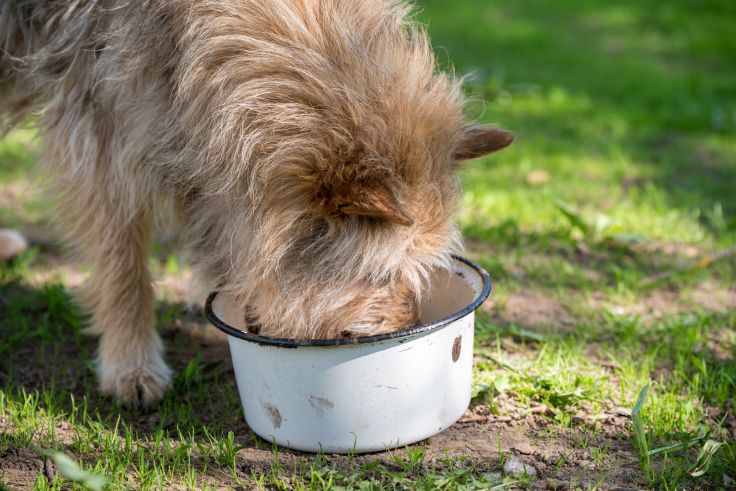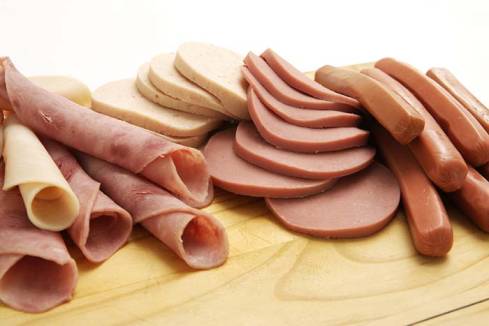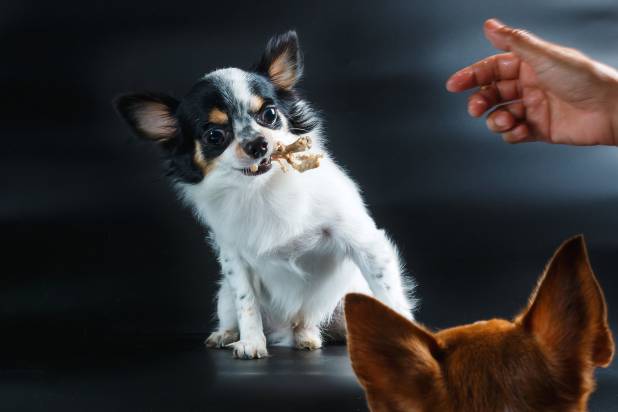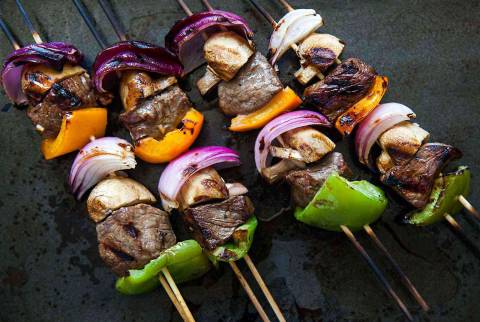If you’ve been a pet parent for any length of time, you know that dogs eat the strangest things sometimes. They may find a dead bird and try to eat it. A dog may dig in the trash and come up with something inedible, such as an aluminum pan! But what happens if a dog eats an aluminum pan?
Connect with a verified veterinarian in minutes. Licensed vets are available 24/7 to answer your questions. No need to worry about your furry family member.
Has your dog eaten an aluminum pan? Are you worried the aluminum pan will make your dog sick? If so, you’ve come to the right place. We understand it’s scary when your dog eats something like this.
We’ve gathered information about aluminum pans and whether they can make a dog sick. Let’s get started!

What is an Aluminum Pan?
The kind of aluminum pan we’re talking about in this article is the kind you’d buy at the grocery store. These are usually one-use pans that can be used to cook or bake almost anything. The pans are inexpensive, and when you’re finished with them, you just throw them away. There’s no need to wash them!
For this reason, an aluminum pan could attract a dog. For instance, maybe meat was cooked in the pan or something sweet, like cinnamon rolls. A dog would be crazy to pass these up! But what happens if a dog eats an aluminum pan?
Aluminum Pans & Dogs
Unfortunately, nothing good happens when a dog eats an aluminum pan. Well, that’s not true. At least the dog has a little enjoyment from licking the pan before he eats it!
After that, there’s a major problem. Once the aluminum pan has been eaten, it’s possible for the pan to get lodged in some part of the dog’s digestive tract. This can lead to a condition called intestinal obstruction, which can be a life-threatening medical condition if it’s left untreated.

Review symptoms, medications & behavior to keep your pets healthy with a Vet Online in just minutes.
Ask a Vet Live NowSymptoms of Aluminum Pan Ingestion in Dogs
You may notice these symptoms if your dog has eaten an aluminum pan:
- Vomiting
- Diarrhea
- Constipation
- Weakness
- Nausea
- Abdominal pain & swelling
- Dehydration
- Restlessness
If you notice any of these symptoms in your dog, call the vet immediately. This is an emergency.
Treatment of Aluminum Pan Ingestion in Dogs
The vet may run x-rays to see how much of the pan your dog has eaten and where it’s located in your fur baby’s system.
If your dog has eaten a large part of the pan, this will be obvious on the images. The vet will be able to tell where the pan is and how to remove the blockage. In most cases like this, it’s necessary for the vet to perform surgery. The surgery safely removes the blockage and repairs any damage the aluminum pan may have done.
The prognosis is best for dogs who receive prompt medical treatment after eating an aluminum pan. In the future, it’s a good idea to keep aluminum pans out of your dog’s reach and to invest in a dog-proof wastebasket. You’ll both be happier for it!
Connect with a verified veterinarian in minutes. Licensed vets are available 24/7 to answer your questions. No need to worry about your furry family member.

Julie
Julie is a graduate of the University of North Carolina, Wilmington, where she studied Animal science. Though contrary to the opinion of her parents she was meant to study pharmacy, but she was in love with animals especially cats. Julie currently works in an animal research institute (NGO) in California and loves spending quality time with her little cat. She has the passion for making research about animals, how they survive, their way of life among others and publishes it. Julie is also happily married with two kids.
Review symptoms, medications & behavior to keep your pets healthy with a Vet Online in just minutes.
Ask a Vet Live Now




